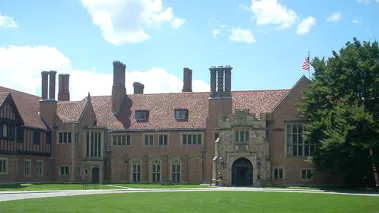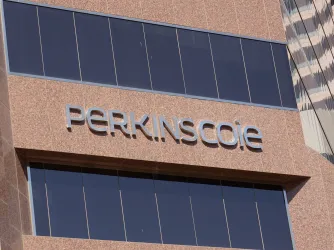Table of Contents
Speech Code of the Month: Oakland University

FIRE announces its Speech Code of the Month for April 2012: Oakland University in Michigan. Oakland has been on our radar for some time now due to its severedisciplineofstudentJosephCorlett, who was barred from campus, suspended for three semesters, and required to undergo "sensitivity" counseling for authoring a class assignment in which he stated that he found his instructor attractive.
As it turns out, Oakland's treatment of Joseph Corlett is not the only way in which the public university is disregarding its obligation to uphold students' First Amendment rights. The university also maintains a number of speech codes that impermissibly restrict students' expressive rights on campus. The worst, by far, is the Student Handbook's policyon "telephones," which despite its title actually regulates communications over "any telephone or other communications device." Specifically, the policy provides that
No person shall use any telephone or other communications device to harass, offend, or disturb any other person, nor shall any person use threatening, obscene, immoral, or insulting language over any telephone or other communications device.
A law or regulation can violate the right to free speech by being vague or by being overly broad. This policy is both. The U.S. Supreme Court has held that laws must "give a person of ordinary intelligence a reasonable opportunity to know what is prohibited, so that he may act accordingly," or else they are unconstitutionally vague. Grayned v. City of Rockford, 408 U.S. 104, 108-09 (1972). This policy, with its expansive and undefined terminology, gives students no such opportunity. There is no way to know what another person might find offensive, disturbing, immoral, or insulting, so students have no way of knowing in advance whether their speech might be in violation of the policy.
The policy is also overly broad, because in addition to legitimate prohibitions—such as prohibitions on threats and obscenity—it bans speech that is protected by the First Amendment. As courts have held time and again, speech cannot be prohibited simply because it is offensive, insulting, or (gasp!) "immoral." Perhaps someone needs to remind the Oakland administration that the Victorian era ended decades ago!
To quote just a few key Supreme Court cases on this point:
- "Speech is often provocative and challenging. It may strike at prejudices and preconceptions and have profound unsettling effects as it presses for acceptance of an idea. That is why freedom of speech, though not absolute, is nevertheless protected against censorship or punishment, unless shown likely to produce a clear and present danger of a serious substantive evil that rises far above public inconvenience, annoyance, or unrest." Terminiello v. Chicago, 337 U.S. 1, 4 (1949).
- "[O]ne man's vulgarity is another's lyric." Cohen v. California, 403 U.S. 15, 25 (1971).
- "[T]he mere dissemination of ideas—no matter how offensive to good taste—on a state university campus may not be shut off in the name alone of ‘conventions of decency.'" Papish v. Board of Curators of the University of Missouri, 410 U.S. 667, 670 (1973).
In addition, two federal courts whose jurisdiction includes Oakland University have made clear that public universities may not violate their students' First Amendment rights via overbroad and vague speech codes. The U.S. District Court for the Eastern District of Michigan—which includes Oakland County—has held not only that "[i]t is firmly settled that under our Constitution the public expression of ideas may not be prohibited merely because the ideas are themselves offensive to some of their hearers," but also that "[t]hese principles acquire a special significance in the University setting, where the free and unfettered interplay of competing views is essential to the institution's educational mission." Doe v. University of Michigan, 721 F. Supp. 852, 863 (E.D. Mich. 1989) (internal citations removed).
And in Dambrot v. Central Michigan University, 55 F.3d 1177, 1183 (6th Cir. 1995), the United States Court of Appeals for the Sixth Circuit struck down a Central Michigan University speech code that prohibited "any intentional, unintentional, physical, verbal, or nonverbal behavior that subjects an individual to an intimidating, hostile or offensive educational, employment or living environment by ... demeaning or slurring individuals ... or ... using symbols, [epithets] or slogans that infer negative connotations about the individual's racial or ethnic affiliation." The Sixth Circuit held that the policy was both unconstitutionally overbroad and vague because under its terms, "language or writing, intentional or unintentional, regardless of political value, can be prohibited upon the initiative of the university." The court noted that "there is nothing to ensure the University will not violate First Amendment rights even if that is not their intention," and was alarmed by the fact that under the policy, "[d]efining what is offensive is, in fact, wholly delegated to university officials."
Under these clear, binding precedents, Oakland's policy is even more indefensible.
Finally, Oakland's policy is so broad that it cannot possibly be enforced across the board—there is simply no way the university has the resources to punish every instance of a student using offensive or insulting language over any communications device. Therefore, it can only be enforced selectively or arbitrarily, raising due process concerns as well.
By maintaining this policy, Oakland University is in clear violation of its students' First Amendment rights. For this reason, it is our April 2012 Speech Code of the Month.
If you believe that your college's or university's policy should be a Speech Code of the Month, please email speechcodes@thefire.org with a link to the policy and a brief description of why you think attention should be drawn to this code. If you are a current college student or faculty member interested in free speech, consider joining FIRE's Campus Freedom Network, an organization of college faculty members and students dedicated to advancing individual liberties on their campuses. You also can add FIRE's Speech Code of the Month Widget to your blog or website and help shed some much—needed sunlight on these repressive policies.
Recent Articles
FIRE’s award-winning Newsdesk covers the free speech news you need to stay informed.

FIRE POLL: Only 1/4 of Americans support deporting foreigners for pro-Palestinian views

Harvard’s resistance to Trump is a model for US universities

Sixty-one media organizations and press freedom advocates contest Perkins Coie executive order — First Amendment News 466
